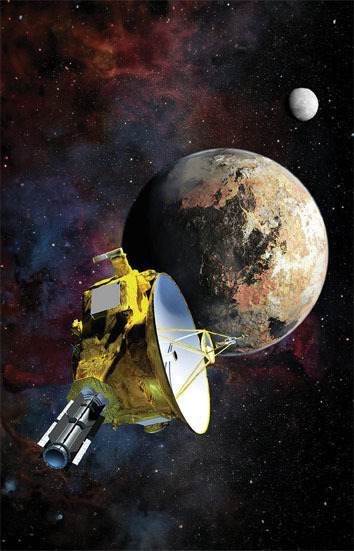DEAD. COLD. DARK. SMALL. OLD, VERY OLD. Many such words have been used to describe the dwarf planet Pluto, which orbits the sun very far away. About 40 times as far from the sun as Earth. Pluto is much smaller than other planets and was ‘demoted’ from planet status in 2006. Secular scientists believe Pluto is 4.5 billion years (Ga) old. They also believed Pluto was dead, meaning geologically inactive. This is because, by being so small and far from the sun, if it were anywhere near that old, it would have lost all its internal heat long, long ago.

In 2015, the New Horizons spacecraft finally reached its destination to study what NASA called “a relic from the formation of the solar system”. This was the first mission designed to study Pluto, its moons, and other objects in the Kuiper Belt. This belt is a vast region of space beyond Neptune’s orbit, containing icy bodies including Pluto.
The spacecraft took the first detailed, close-up images of the surface of Pluto and its moon, Charon, while studying the composition of the dwarf planet. What it has found and continues to find has been surprising, inspiring, intriguing, and mind-blowing. Pluto is shocking the science world by not being cold, dark, dead, and all the similar adjectives used to describe it. The greatest surprise is that Pluto does not appear to be old.
Several areas of Pluto studied are believed to be recently active cryovolcanoes. Among these areas are Virgil Fossae and Viking Terra. Similar icy volcanoes have also been discovered on the planetary moons Enceladus (orbiting Saturn) and Triton (orbiting Neptune). The question is then, how? How can a cold, dead planet still have volcanoes? How can a very old, small planet be active? Where would the energy come from, if not from internal heat? But how can Pluto be so small and still have internal heat? The Bible. God’s inerrant word gives us the answer it is about 6,000 years old not billions.
